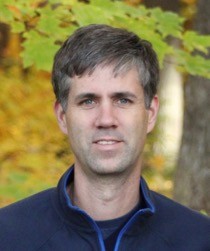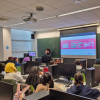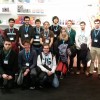-
Estudios
-
Másteres
- ¿Quieres estudiar un Máster?
- Máster en Ingeniería Informática
- Máster en Ingeniería Informática - Modalidad Empresa
- Máster en Innovación e Investigación en Informática
- Máster en Inteligencia Artificial
- Master en Ciberseguridad
- Máster en Formación del Profesorado de Educación Secundaria
- Erasmus Mundus Master in Big Data Management and Analytics
- Máster en Ciencia de Datos
- Máster en Movilidad Urbana
- Otros Másteres
-
Másteres
-
Movilidad
- Investigación
- Empresa
-
La FIB
- Estudios
- Grados
- Másteres
- ¿Quieres estudiar un Máster?
- Máster en Ingeniería Informática
- Máster en Ingeniería Informática - Modalidad Empresa
- Máster en Innovación e Investigación en Informática
- Máster en Inteligencia Artificial
- Master en Ciberseguridad
- Máster en Formación del Profesorado de Educación Secundaria
- Erasmus Mundus Master in Big Data Management and Analytics
- Máster en Ciencia de Datos
- Máster en Movilidad Urbana
- Otros Másteres
- Secretaría
- Becas y Ayudas
- Movilidad
- Investigación
- Empresa
- La FIB
Talk: "Enhancing Memory Systems for Heterogeneity"
Usted está aquí
Speaker: Mike Swift (University of Wisconsin - Madison)
Date: 1st March 2018, 11:00 a.m.
Venue: C6-E101, Campus NordJueves 22 Febrero 2018

Abstract
Heterogeneity within systems is increasing with the rise of alternative compute engines, such as GPUs and accelerators, and alternative memories, such as non-volatile 3D XPoint from Intel. n this talk, I discuss two projects that adapt memory system design for different kinds of heterogeneity.
First, accelerators are increasingly recognized as one of the major drivers of future computational growth. Shared virtual memory (VM) promises to simplify programming and provide safe data sharing with CPUs. Unfortunately, the overheads of virtual memory, which are high for general-purpose processors, are even higher for accelerators. I will describe Devirtualized Memory (DVM), which combines the protection of VM with direct access to physical memory. DVM allocates most memory such that physical and virtual addresses are almost always identical (VA==PA), which simplifies address translation on the critical path of memory requests to access validation that can proceed in parallel.
Second, programming persistent memory (PM) applications is challenging as programmers have to reason about crash consistency and use low-level programming models. I will describe the Hands-off Persistence System (HOPS) that removes some of these constraints by efficiently order PM updates in hardware using persist buffers. HOPS also provides high-level ISA primitives for applications to express durability and ordering constraints separately, to enable the use of ACID transactions.
Biography
Mike Swift is an professor at the University of Wisconsin--Madison. His research focuses on the hardware/operating system boundary, including devices drivers, new processor/memory technologies, and transactional memory. He grew up in Amherst, Massachusetts and received a B.A. from Cornell University in 1992. After college, he worked at Microsoft in the Windows group, where he implemented authentication and access control functionality in Windows Cairo, Windows NT, and Windows 2000. He received a Ph.D. on operating system reliability from the University of Washington in 2005. He did a sabbatical in Barcelona in 2013-14 at the Barcelona Supercomputing Center.
-
24 Feb 26
-
23 Feb 26
-
19 Feb 26
-
18 Feb 26
-
16 Feb 26
-
31 Ene 17
-
01 Feb 17
-
01 Feb 17
-
02 Feb 17
-
02 Feb 17
Dónde estamos
C/Jordi Girona Salgado,1-3
08034 BARCELONA España
Tel: (+34) 93 401 70 00
Contacta con la FIB
© Facultat d'Informàtica de Barcelona - Universitat Politècnica de Catalunya - Avíso legal sobre esta web - Configuración de privacidad












